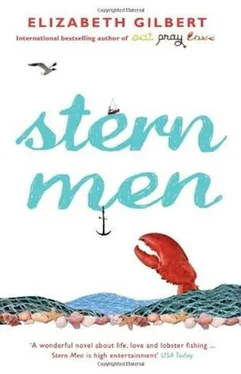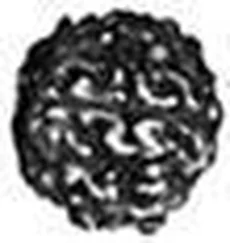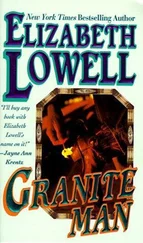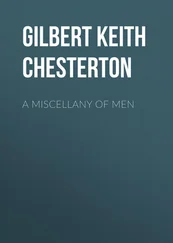Every night before she went to bed she kissed her mother on the cheek. Miss Vera would ask coyly, “Where’s my kiss?” and Ruth would cross the room on steel legs, bend, and kiss that lavender cheek. She did this for her mother’s sake. She did this because it was less trouble than throwing an ashtray across the room. She could see the relief it brought her mother. Good. Whatever she could do to help, fine. Fuck it.
“Where’s my kiss?” Cal would ask every night.
And every night Ruth would mutter something like “Goodnight, Cal. Try to remember not to murder us in our sleep.”
And Miss Vera would say, “Such hateful words for a child your age.”
Yeah, Ruth thought. Yeah, whatever. She knew she should keep her mouth shut entirely, but she enjoyed getting a stab or two into Cal Cooley now and again. Made her feel like herself. Familiar, somehow. Comforting. She would carry the satisfaction to bed with her and curl up against it, as if it were a teddy bear. Her nightly poke at Cal would help Ruth Thomas go to sleep without stewing for hours over the eternal, nagging question: What fate had shoved her into the lives of the Ellis family? And why?
In every batch of segmenting lobster eggs, one is sure to meet with irregular forms, and in some cases, the greater number appear to be abnormal.
– The American Lobster: A Study of Its Habits and Development Francis Hobart Herrick, Ph.D. 1895
AT THE END of the week, Cal Cooley and Ruth drove back to Rockland, Maine. It rained the whole time. She sat in the front seat of the Buick with Cal, and he did not shut up. He teased her about her one set of clothes and about the shopping trip to Blaire’s, and he did grotesque imitations of her mother’s servile attendance on Miss Vera.
“Shut up, Cal,” Ruth said.
“Oh, Miss Vera, shall I wash your hair now? Oh, Miss Vera, shall I file your corns now? Oh, Miss Vera, shall I wipe your butt now?”
“Leave my mother alone,” Ruth said. “She does what she has to do.”
“Oh, Miss Vera, shall I lie down in traffic now?”
“You’re worse, Cal. You kiss more Ellis ass than anyone. You play that old man for every penny, and you suck up like crazy to Miss Vera.”
“Oh, I don’t think so, sweetheart. I think your mother wins the prize.”
“Up yours, Cal.”
“So articulate, Ruth!”
“Up yours, you sycophant.”
Cal burst out laughing. “That’s better! Let’s eat.”
Ruth’s mother had sent them off with a basket of bread and cheese and chocolates, and Ruth now opened it. The cheese was a small wheel, soft and wax-covered, and when Ruth cut into it, it released a deadly odor, like something rotting at the bottom of a damp hole. Specifically, it smelled like vomit at the bottom of that hole.
“Jesus fuck!” Cal shouted.
“Oh, my God!” Ruth said, and she stuffed the cheese back into the basket, slamming down the wicker cover. She pulled the top of her sweatshirt up over her nose. Two useless measures.
“Throw it out!” Cal shouted. “Get that out of here.”
Ruth opened the basket, rolled down the window, and flung out the cheese. It bounced and spun on the highway behind them. She hung her head out of the window, taking deep breaths.
“What was that?” Cal demanded. “What was that?”
“My mom said it was sheep’s milk cheese,” Ruth said, when she caught her breath. “It’s homemade. Somebody gave it to Miss Vera for Christmas.”
“To murder her!”
“Apparently it’s a delicacy.”
“A delicacy? She said it was a delicacy?”
“Leave her alone.”
“She wanted us to eat that?”
“It was a gift. She didn’t know.”
“Now I know where the expression ‘cut the cheese’ comes from.”
“Oh, for Christ’s sake.”
“I never knew why they said that before, but now I know,” Cal said. “ Cut the cheese. Never thought about it.”
Ruth said, “That’s enough, Cal. Do me a favor and don’t talk to me for the rest of the trip.”
After a long silence, Cal Cooley said thoughtfully, “Where does the expression ‘blow a fart’ come from, I wonder?”
Ruth said, “Leave me alone, Cal. Please, for the love of God, just leave me alone.”
When they arrived at the dock in Rockland, Pastor Wishnell and his nephew were already there. Ruth could see the New Hope, sitting on flat gray sea speckled with rain. There were no greetings.
Pastor Wishnell said, “Drive me to the store, Cal. I need oil, groceries, and stationery.”
“Sure,” Cal said. “No problem.”
“Stay here,” Pastor Wishnell said to Owney, and Cal, imitating the pastor’s inflection, pointed at Ruth and said, “Stay here.”
The two men drove off, leaving Ruth and Owney on the dock, in the rain. Just like that. The young man was wearing a brand-new yellow slicker, a yellow rain hat, and yellow boots. He stood still and broad, looking out to sea, his big hands clasped behind his back. Ruth liked the size of him. His body was dense and full of gravity. She liked his blond eyelashes.
“Did you have a good week?” Ruth asked Owney Wishnell.
He nodded.
“What did you do?”
He sighed. He grimaced, as if he were trying hard to think. “Not much,” he finally said. His voice was low and quiet.
“Oh,” Ruth said. “I went to see my mother in Concord, New Hampshire.”
Owney nodded, frowned, and took a deep breath. He seemed about to say something, but, instead, he clasped his hands behind his back again and was silent, his face blank. He’s incredibly shy, Ruth thought. She found it charming. So big and so shy!
“To tell you the truth,” Ruth said, “it makes me sad to see her. I don’t like it on the mainland; I want to get back to Fort Niles. What about you? Would you rather be out there? Or here?”
Owney Wishnell’s face turned pink, bright cherry, pink again, then back to normal. Ruth, fascinated, watched this extraordinary display and asked, “Am I bothering you?”
“No.” He colored again.
“My mother always presses me to get away from Fort Niles. Not really presses, but she made me go to school in Delaware, and now she wants me to move to Concord. Or go to college. But I like it out there.” Ruth pointed at the ocean. “I don’t want to live with the Ellis family. I want them to leave me alone.” She didn’t understand why she was rambling on to this huge, quiet, shy young man in the clean yellow slicker; it occurred to her that she sounded like a child or a fool. But when she looked at Owney, she saw that he was listening. He wasn’t looking at her as if she were a child or a fool. “You’re sure I’m not bothering you?”
Owney Wishnell coughed into his fist and stared at Ruth, his pale blue eyes flickering with his effort. “Um,” he said and coughed again. “Ruth.”
“Yes?” It thrilled her to hear him say her name. She hadn’t known that he was aware of it. “Yes, Owney?”
“Do you want to see something?” he asked. He blurted out this line as if it were a confession. He said it most urgently, as if he were about to reveal a cache of stolen money.
“Oh, yes,” Ruth said, “I’d love to.”
He looked uncertain, strained.
“Show me,” Ruth said. “Show me something. Sure. Show me whatever you want to show me.”
“Have to hurry,” Owney said, and he snapped alive. He rushed to the end of the dock, and Ruth rushed after him. He hustled down the ladder and into a rowboat, untied it in a flash, and gestured for Ruth to follow. He was already rowing, it seemed, as she tumbled into the boat. He pulled at the oars with beautiful, solid strokes- swish, swish, swish -and the boat shimmied across the waves.
Читать дальше









